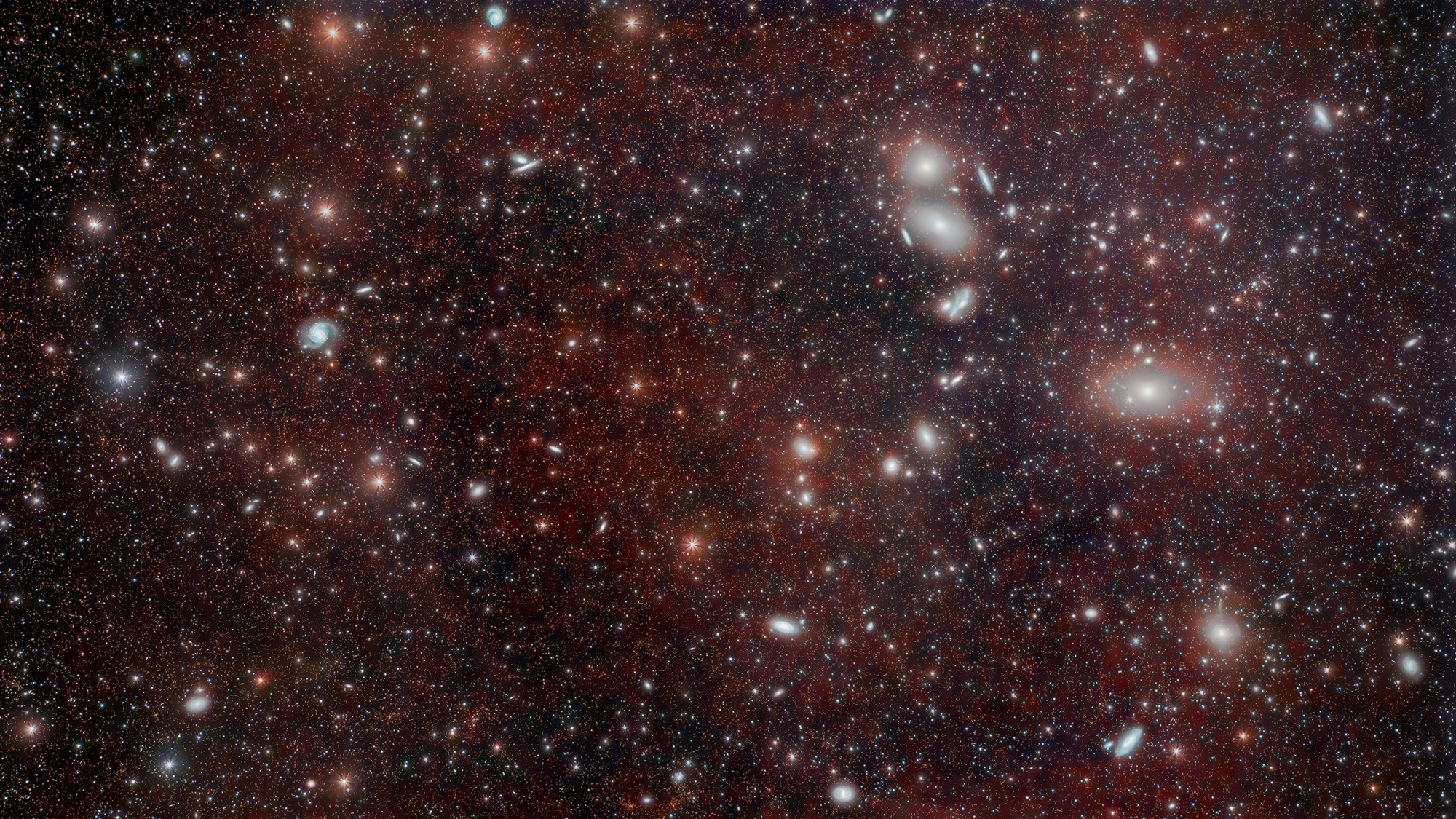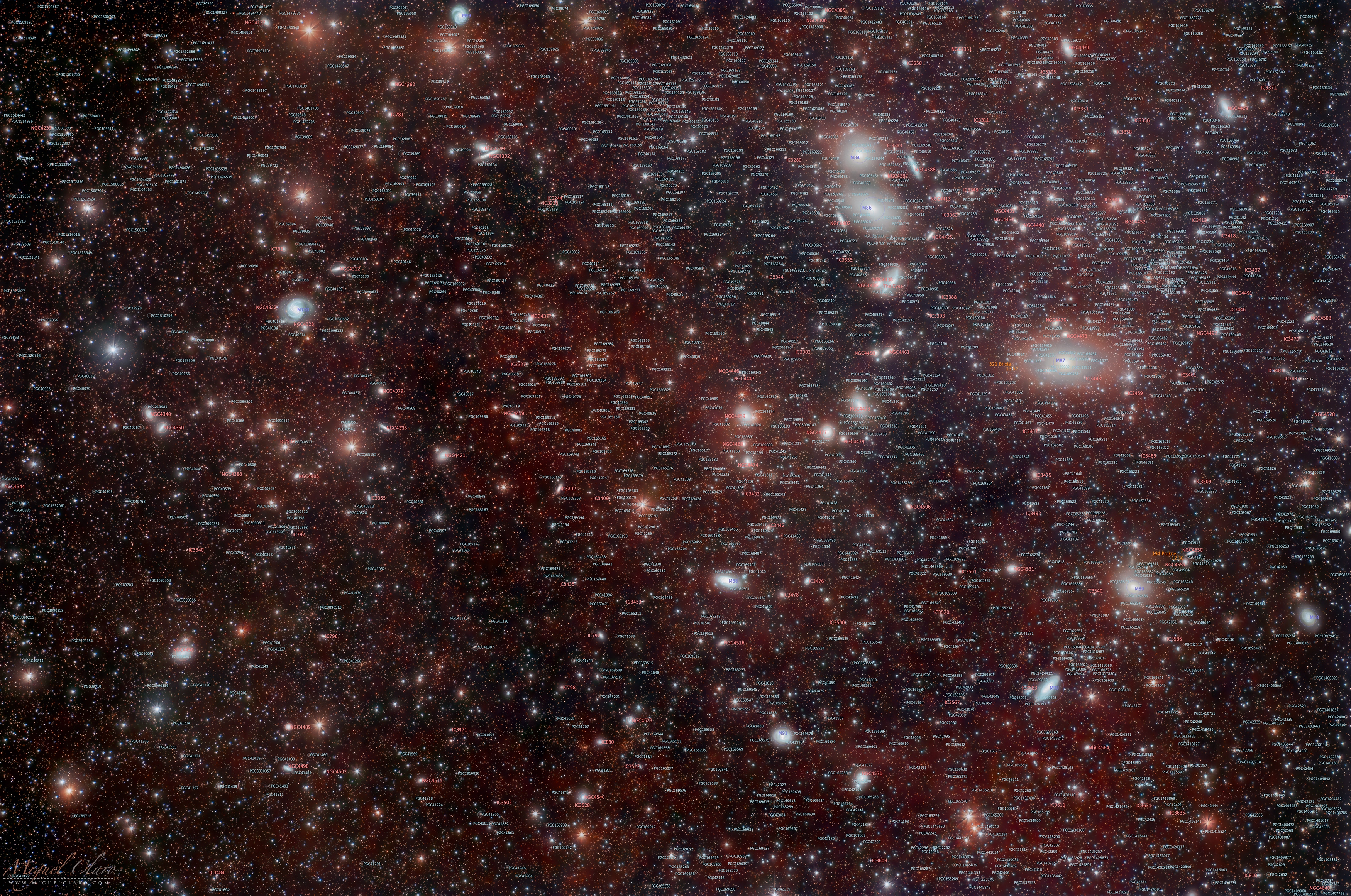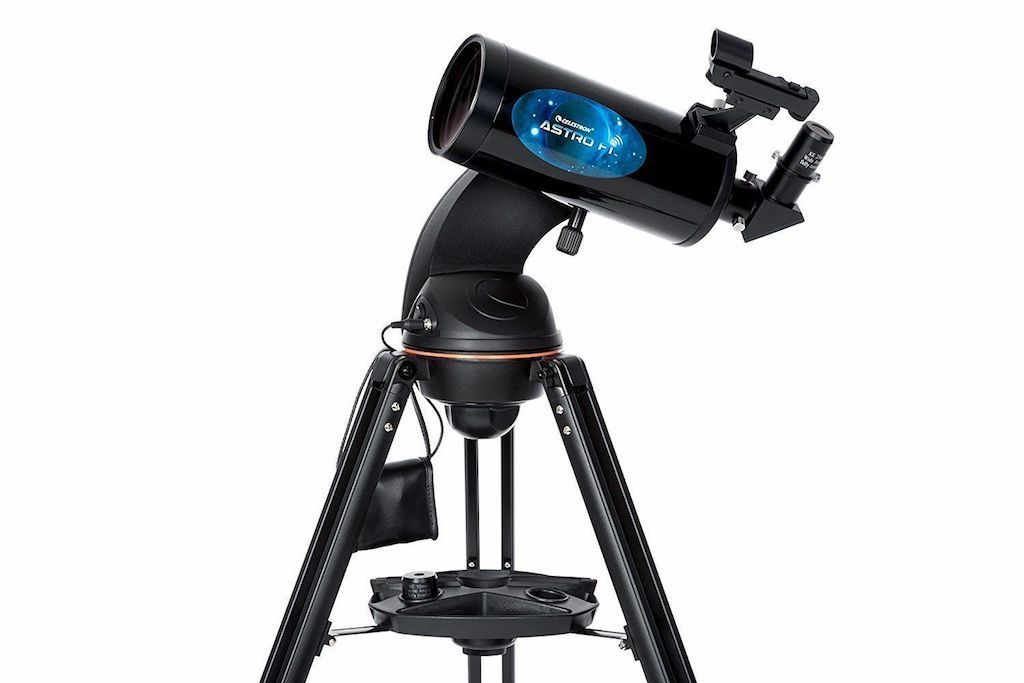See 1,900 galaxies light up the night in gorgeous deep-sky photo
A dark sky preserve in Portugal serves up 1,900 galaxies to feast upon.

Miguel Claro is a professional photographer, author and science communicator based in Lisbon, Portugal, who creates spectacular images of the night sky. As a European Southern Observatory Photo Ambassador and member of The World At Night and the official astrophotographer of the Dark Sky Alqueva Reserve, he specializes in astronomical "Skyscapes" that connect both Earth and the night sky.
Join Miguel here as he takes us through his "Thousands of Galaxies Immersed in the Reddish Hydrogen Gas of Virgo Cluster" image.
This image features the Virgo Cluster, a collection of galaxies located in the constellation of Virgo.
A deep wide-field scene is captured here at 300mm and comprising 4 hours of total integration exposure, showing galaxies at a distance of 48 million light-years away from Earth.
The Virgo cluster forms the heart of the larger Virgo Supercluster from which the Local Group of galaxies, containing our own Milky Way galaxy, belongs. Our own Milky Way galaxy also has clouds of hydrogen gas lying between us and the Virgo Cluster.
Related: Milky Way galaxy: Everything you need to know about our cosmic neighborhood
Read more: How to photograph the Milky Way: A guide for beginners and enthusiasts


Looking for a telescope? We recommend the Celestron Astro Fi 102 as the top pick in our best beginner's telescope guide.
More than 1,890 galaxies are visible in the image. They are immersed in star-forming clouds, and you can see even more detail (and labels) in the annotated image above. (The annotations are based on International Astronomical Union monikers that the community uses, but your culture may have different names.)
Get the Space.com Newsletter
Breaking space news, the latest updates on rocket launches, skywatching events and more!
At left in the image, we can see the Messier 100 (M100) galaxy, while at the right center is the upside down "question mark" shaped by the galaxies known as Markarian's Chain. The chain includes the gigantic elliptical galaxy M87, the enormous elliptical galaxy M86 and M84, and the colorful galaxies M90, M91 and M88.
The image was captured from an official dark sky area at Portugal's Alqueva Observatory, over the course of 11 nights.
Want to capture stunning sky scenes like this? Our guides on the best telescopes and best binoculars will help. Learning about the best cameras for astrophotography and best lenses for astrophotography will also help capture incredible deep-sky sights.
To see more of Miguel Claro's work, please see his website or follow his stories on Instagram at www.instagram.com/miguel_claro.
Editor's Note: If you snap your own photos of the sky and would like to share them with Space.com's readers, send your photo(s), comments, and your name and location to spacephotos@space.com.
Join our Space Forums to keep talking space on the latest missions, night sky and more! And if you have a news tip, correction or comment, let us know at: community@space.com.









